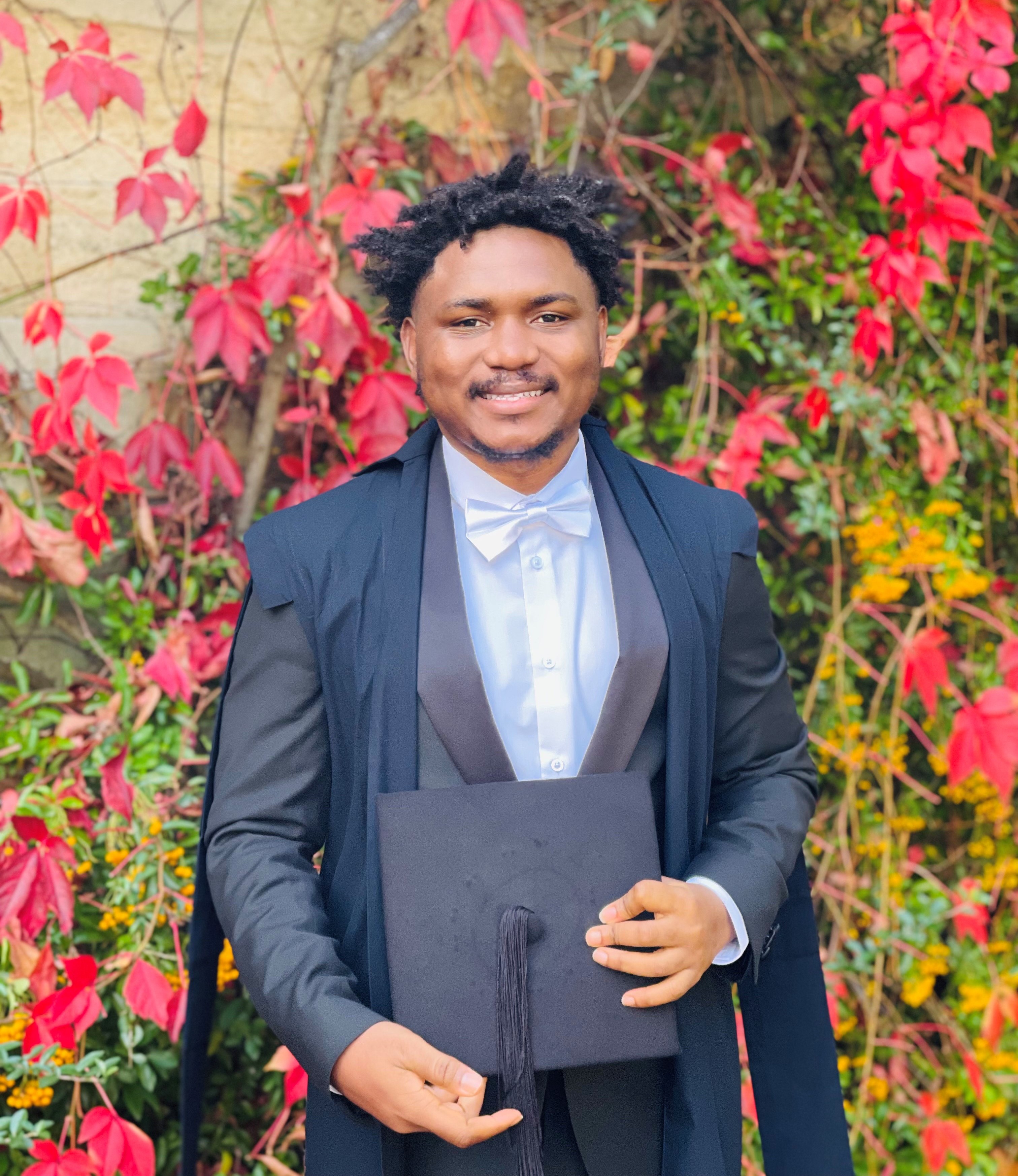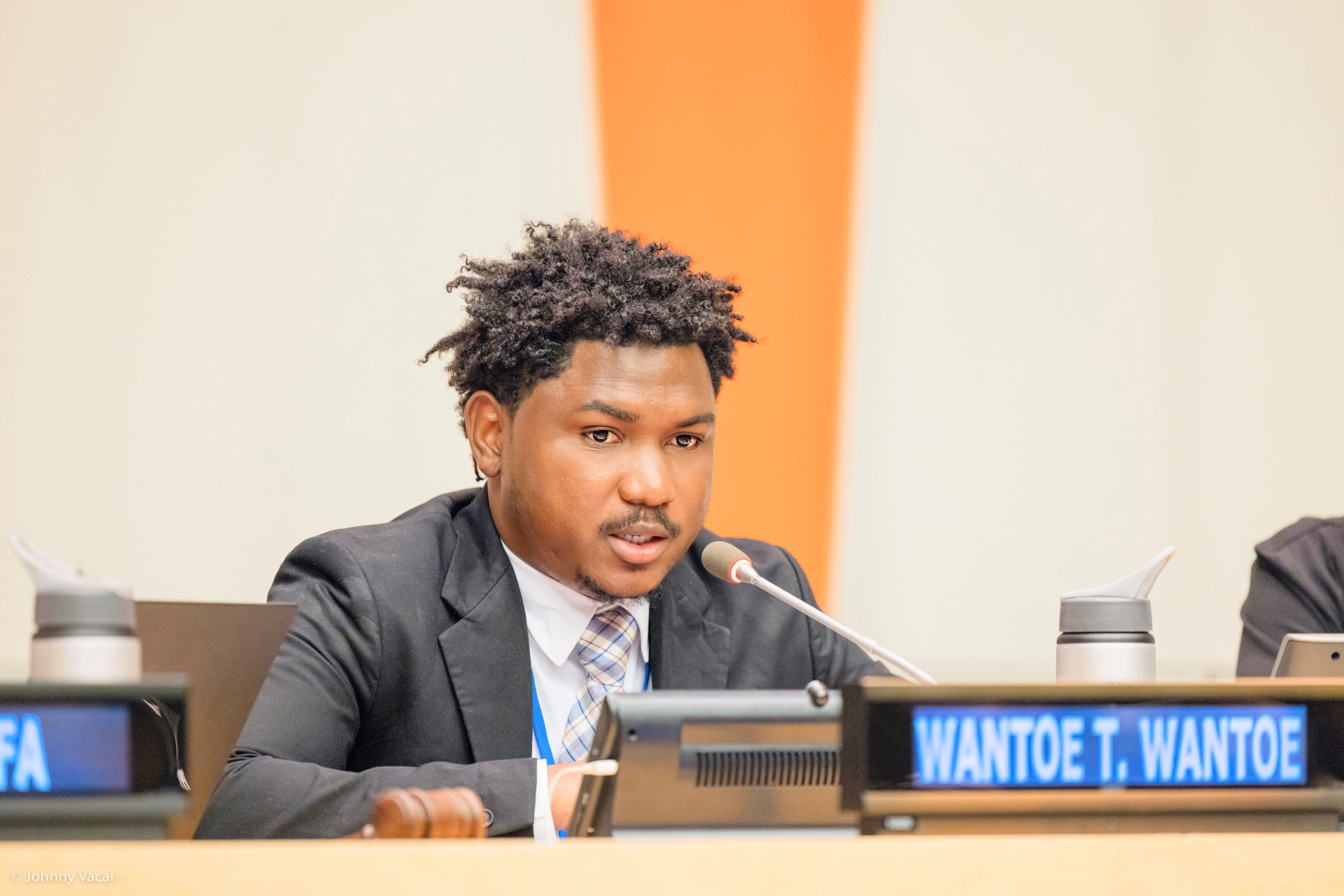More Pembroke news
BlackPembroke Stories: Wantoe T. Wantoe
NEWS |

In collaboration with the BlackPembroke working group, this October we are sharing stories from across the College community.
Wantoe T. Wantoe has recently joined the Pembroke community, studying for a Masters in Public Policy with the Blavatnik School of Government. We asked Wantoe to share the story behind his journey to Oxford, the global projects he has been involved with, and his hopes and ambitions for the future of Liberia.
Tell us about yourself
I am from Liberia, and I am an activist for children and women’s rights. I am also a campaigner for the UN Sustainable Development Goals.
Growing up in a slum community in Monrovia, I gained first-hand exposure to the impacts of inequality, poverty, violence, and the exclusion of youth from the national decision-making process. Seeing this, as well as the devastating systemic violence against women and children which plagues Liberia, I knew that I wanted to make a change. I want to become a leader who addresses core problems of poverty, human rights, illiteracy and economic inequality.
Since I was nine years old I have been organising and participating in rallies, petitions, awareness campaigns and policy debates impacting thousands of Liberians. In 2013, for example, I was appointed as the youth representative to Liberia’s Independent National Human Rights Commission, establishing a project to strengthen bystander protection and increase access to human rights investigations, as well as founding the first youth structures in child rights institutions across Liberia’s 15 counties.
How did you choose your area of study?
I am a first-generation student from a very low socioeconomic family structure, and my life experiences have driven my choice to study Public Policy. The patriarchal and traditional culture in which my mother grew up meant that she was denied the opportunity to be educated. This injustice inspired me to advocate for women’s and girls’ rights and particularly to fight for inclusive education as a means to end the systemic oppression and marginalisation of women. I believe that policy reforms will be crucial to achieving this.
Tell us about your proudest achievements?
Following my work during the Ebola outbreak documenting the violations of 785 orphaned and neglected children, I was invited in 2016 to speak at the United Nations World Humanitarian Summit. As the youngest preliminary speaker, I spoke on behalf of West African countries and generated thousands of commitments to action and over a dozen new partnerships to combat humanitarian disasters.
In 2018, I became a Global Young Voices Sustainable Development Goals (SDGs) World Cup Winner for my project on Environmental Preservation in Liberia. In 2019 I was awarded the Diana Award, a prestigious accolade recognising young people’s social action or humanitarian work.
The same year, during the rise of racial inequality and policy brutality, I organised and moderated a Virtual Symposium with civil rights activist Rev. Al Sharpton and State Representative Attica Scott, to give a platform for the voices of African American students in New York.
In June this year, I was named as one of eight ‘Young Pacesetters for African Development’ by the African Renaissance and Diaspora Network, awarded during the Africa Day celebrations at the United Nations Trustee Chambers. I am also a recipient of the College of Mount Saint Vincent’s Frédéric Ozanam Award and Vincent Depaul Award for contributions to students' consciousness and systemic change.

Wantoe speaking at the 2022 Youth Assembly at the United Nations Headquarters
When you’re not studying, what are you doing?
I am organising an event, working on a proposal or in a devotion prayer group. I also watch soccer – I am a Real Madrid Fan!
What are your goals after graduating?
My long-term goal is to contribute to impactful research and diverse expertise to ensure that women, girls and young people can realise their life ambitions.
I am particularly interested in using public policy as an instrument to link a digital and mechanized agriculture system to the empowerment of women, youth and children. I believe that using public policy to engage young people with food production and the digital agriculture sector will develop skills, promote inclusion and increase commercialization in Liberia and Africa.
For now, I am excited to spend my time in Oxford building networks with other BSG-MMP students, whom I have found to be intellectuals and leaders with valuable experience. I hope that we will support each other in the future to find pragmatic and efficient solutions for our world, harnessing our skills for public service.
We are committed to sharing and celebrating the accomplishments and contributions of Black members of the Pembroke community. To mark Black History Month, we are inviting Black students, academics, staff and alumni to give an insight into their research, careers, interests and stories. If you would like to be involved, please get in touch.
Click here for more Black History Month news and events and to find out how you can get involved.

